Skipping breakfast can be useful when you’re trying to lose a little weight. It works by providing an easy way to create a small caloric deficit. But, there can often be challenges associated with this tactic. One such challenge is that skipping the first meal of the day after an all-night fast may lead to poorer performance later in the day.
Skipping Breakfast: An Outrageous Idea
Outrageous though it seems, turns out breakfast is no longer the most important meal of the day for some.
Personally, I wouldn’t dream of addressing daylight without eating something.
Lifting on an empty stomach? Forget it. I’m noticeably weaker, less energised and less enthused overall. Breakfast eaters among my clientele often report having more gusto for having eaten.
Now, if you’re looking to lose a little weight, skipping breakfast may be helpful to that end (1). Wholey as a result of reducing the eating window and total energy intake. Call it intermittent fasting or otherwise.
And if that works for you then great. There are some things to think about though.
Things To Think About
One issue that often comes up is that it can also lead to ‘hanger’ issues. You might feel hungry and irritable resulting in a spell of overeating later in the day. Thereby wiping out the caloric deficit you created by omitting breakfast. Which can obviously spell disaster for your weight loss efforts.
Another thing to consider beyond aesthetics is fastings effect on later performance.
Because let’s not forget, health and fitness do encompass far more than our skin fold sums.
So the question is, could you really be at your best later in the day if you’ve skipped breakfast? If not, does it help to make up for it with a bigger lunch?
This brings us to a couple of studies on the topic.

Do People Who Eat Breakfast Perform Better?
In the first one, 11 highly trained cyclists completed 2 trials (2):
- Breakfast (B), and
- No breakfast (NB)
During B, participants ate a 583 + 54 kcal breakfast at 8–9 am, and an 874 + 80 kcal lunch at 12–2 pm.
During NB, participants fasted until 12 pm when they ate a standardised lunch of 1457 + 134 kcal.
The total energy intake was the same for both trials consisting of 1457 + 134 kcal. Macronutrient profile was also identical in both trials, made up of:
- Carbs: 81.5%
- Fat: 5.8%
- Protein: 12.7 %
The only difference was the timing.
In the evening, participants first did 10 minutes of steady-state exercise. They then performed a 20km cycling time trial. They completed the distance as quickly as possible tracking power output HR and RPE throughout.
What Happened?
First, the intervention resulted in a shift in substrate use during the easy, steady-state exercise.
Carbohydrate oxidation rates were higher, and the rate of fat oxidation was lower in the no breakfast trial. This is likely due to availability.
Energy expenditure rates during the steady-state exercise were similar between conditions.
And what about performance?
Well, you guessed it…
”Mean power output was ~3% lower during the time trial in the no breakfast condition compared with the breakfast condition.”
Which may not sound like much on its own. But, frequent bouts of sub-par training may not result in the best performance outcome.
Also, in competition, that 3% difference can mean everything.
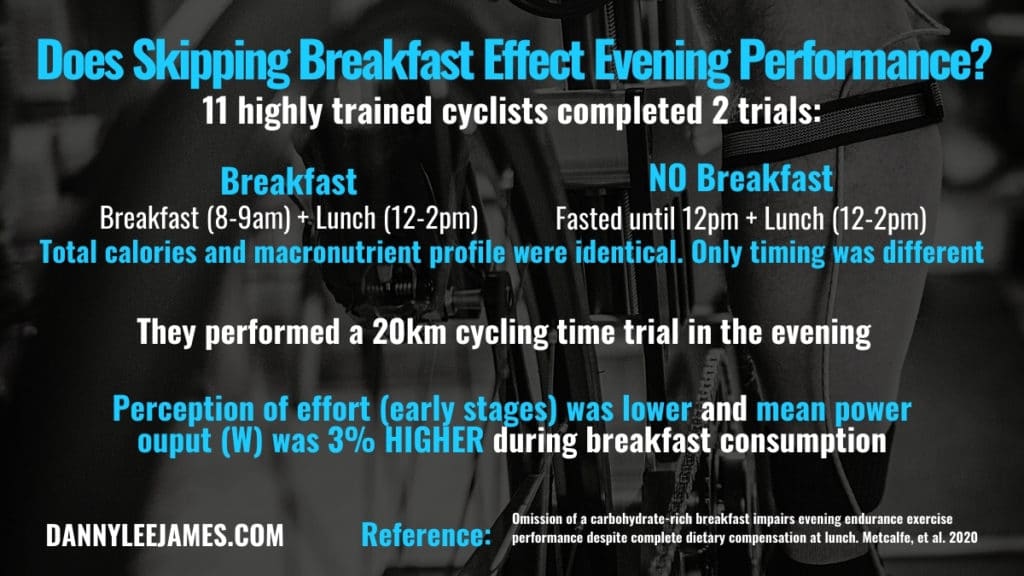
Perception of Effort
Another finding:
Perception of effort seemed a little higher in the early stages of the time trial in NB. This was also despite a lower power output. The no breakfast trial just felt like it was harder.
In a similar study on 10 competitive rowers by the same author concluded the same thing (3):
Omission of a carbohydrate-rich breakfast led to worse evening performance during a 2000-m rowing time trial. And again, RPE was higher in the no-breakfast trial.
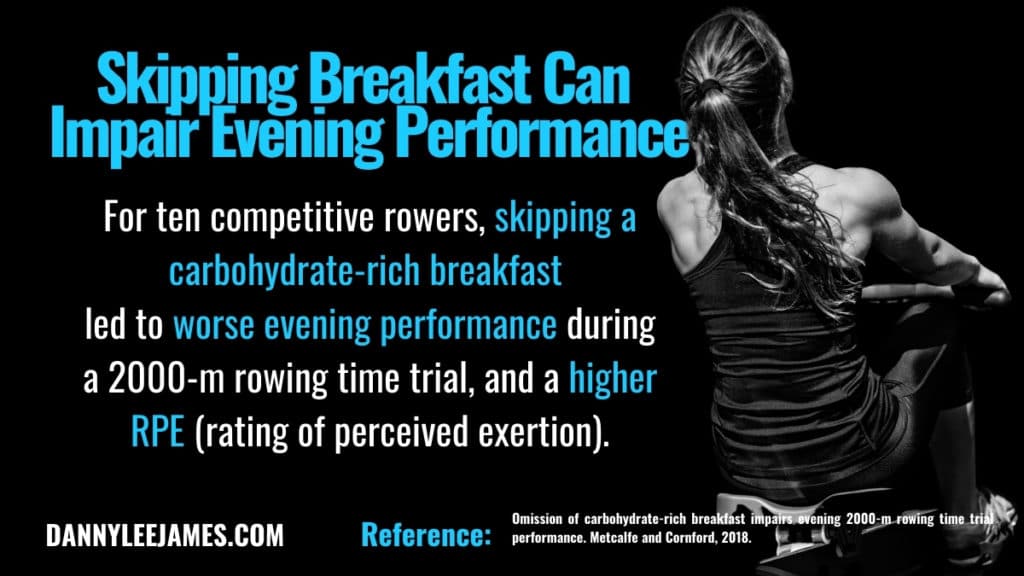
Another study looked at the effect of breakfast omission on energy intake and evening exercise performance (4).
Ten typically-breakfast-easting males completed two trials. They arrived at the lab after an overnight fast and either ate or skipped breakfast.
Ad libitum energy intake was then assessed at lunch and again at dinner. Before dinner, subjects completed 30-min of cycling at 60% V 02peak. They then performed a 30-min max-effort cycling test.
What happened?
Energy Intake and Evening Exercise Performance
Calorie intake at lunch was greater for those that skipped breakfast. For those who did have breakfast, energy intake tended to be higher at dinner than NB. Total energy intake over the 24 hours was greater for those who ate breakfast.
As for performance, there was no difference in RPE this time around. Average HR and energy expenditure was higher during the pre-steady-state cycling in NB.
Performance was 4.5% better in the cycling test during breakfast consumption.
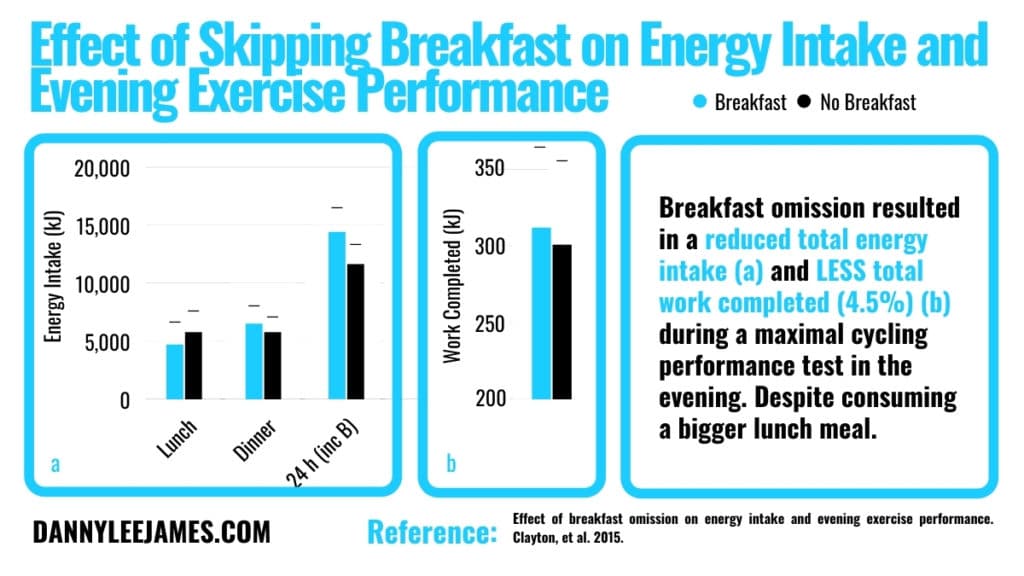
Final Thoughts
Skipping breakfast could be an effective way to take in fewer calories and help lose weight. But studies show that it can have a negative effect on evening performance. Even if you try to compensate by loading up on extra carbs at lunchtime.
That’s something to keep in mind if you have to compete or train intensely later in the day.
Another thing to keep in mind is that skipping that morning meal could impair training adaptations.
Finally, these results suggest that the worse performance was due to meal timing. Rather than carbohydrate intake or availability. This means that if you hope to show up in the evening, then proper fueling begins in the morning with a hearty, healthy breakfast. In some cases, even the day before.
In a lot of studies so far, breakfast eaters simply perform better.
Related
- Bins and Needles, and Light Weights For Fat Loss
- Meal Frequency: What’s Better, Three Or Six Meals Per Day
- Protein Needs For Women Who Lift
References
- Effect of Skipping Breakfast on Subsequent Energy Intake. Levitsky and Pacanowski 2013
- Omission of a carbohydrate-rich breakfast impairs evening endurance exercise performance despite complete dietary compensation at lunch. Metcalfe, et al. 2020
- Omission of carbohydrate-rich breakfast impairs evening 2000-m rowing time trial performance. Metcalfe and Cornford, 2018.
- Effect of breakfast omission on energy intake and evening exercise performance. Clayton, et al. 2015.
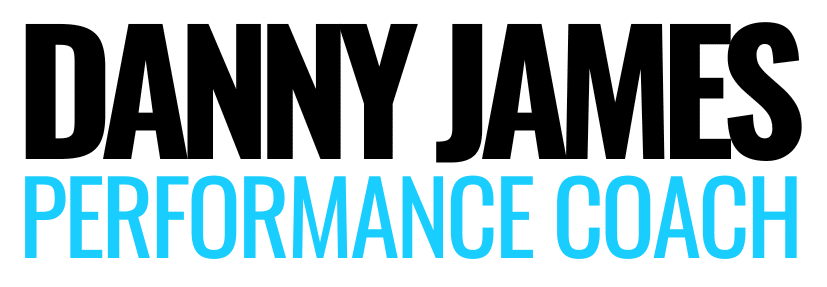
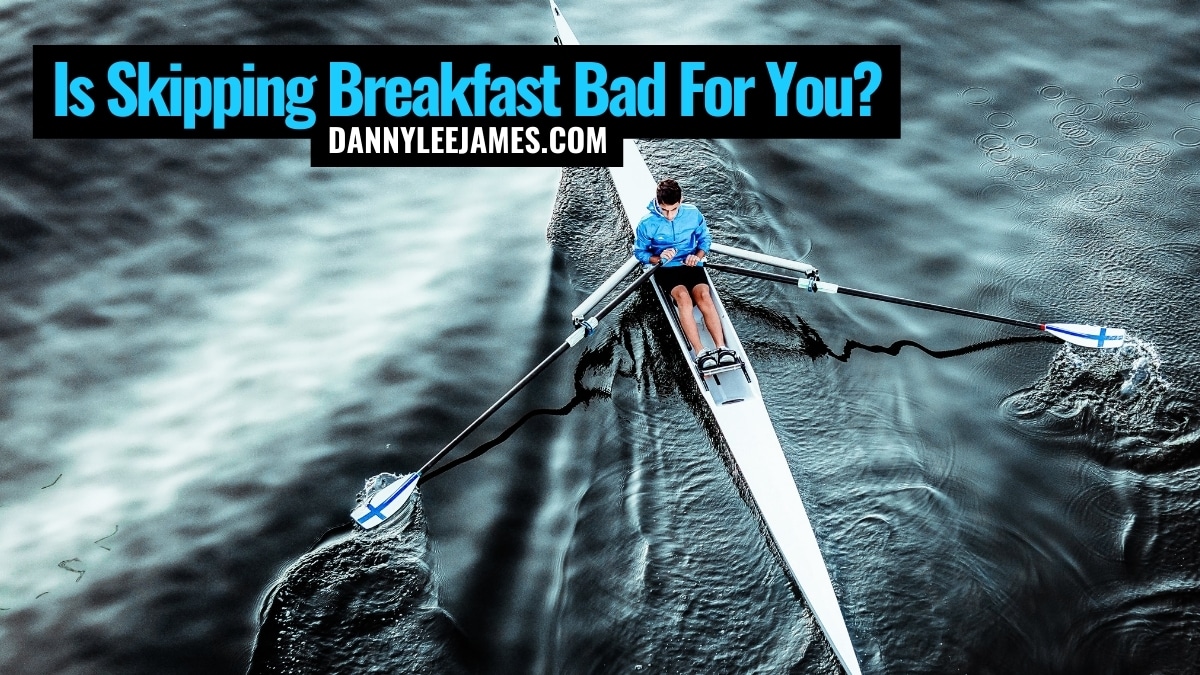

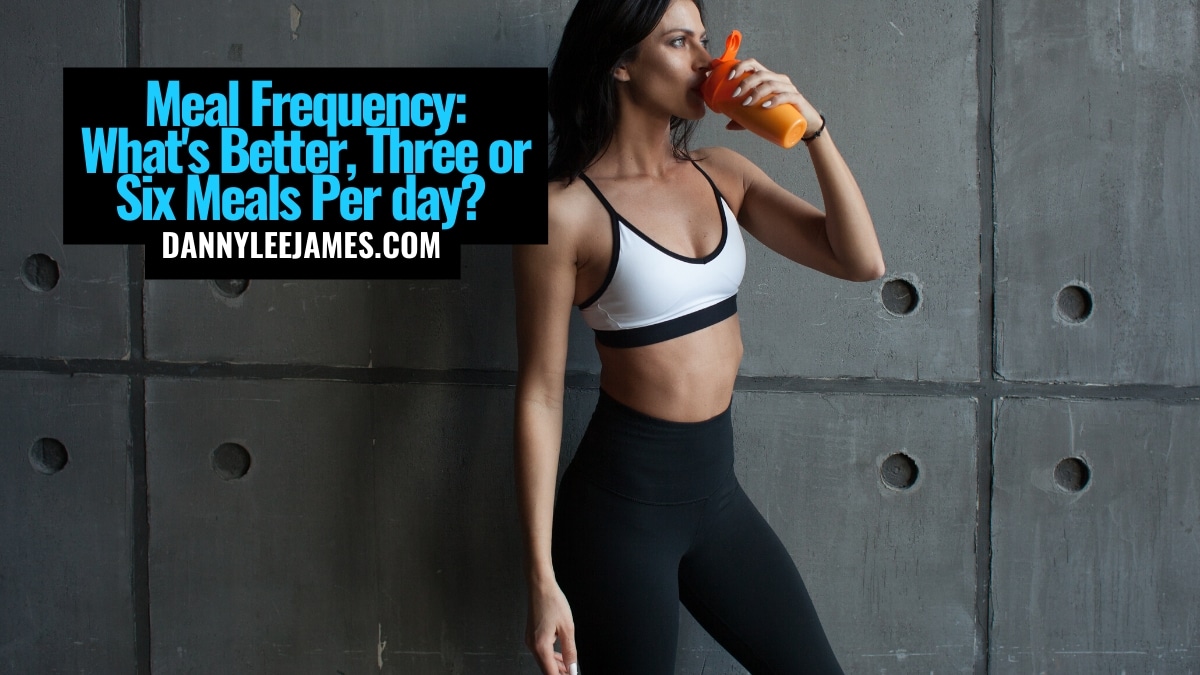

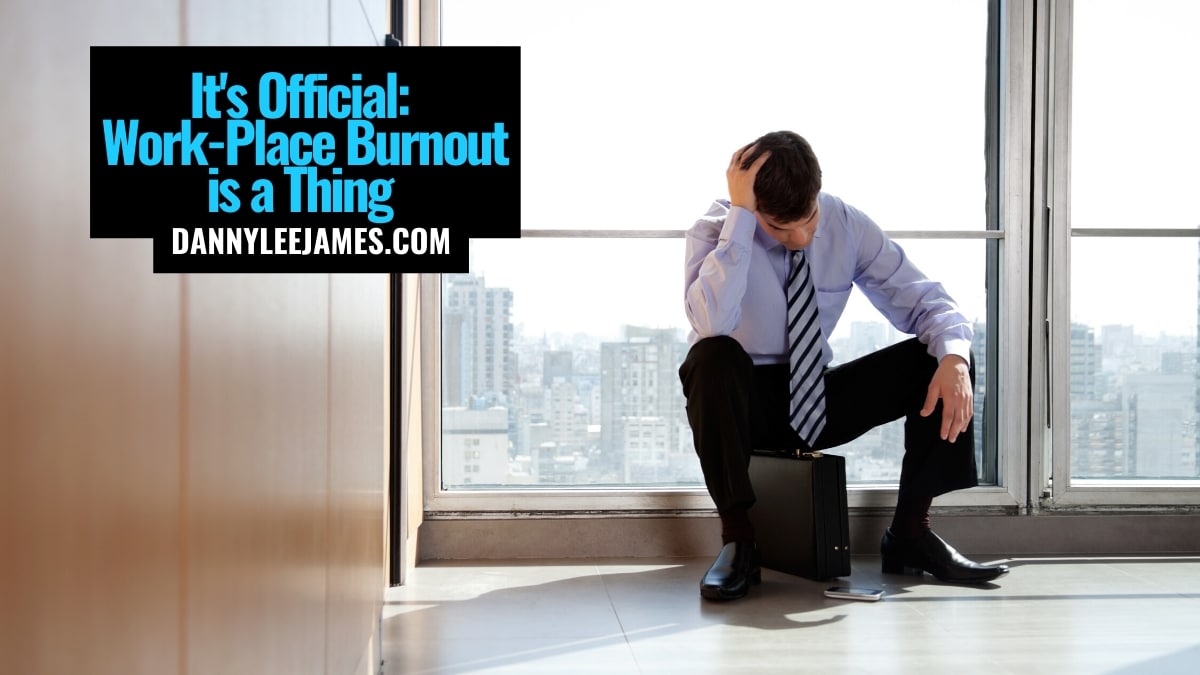

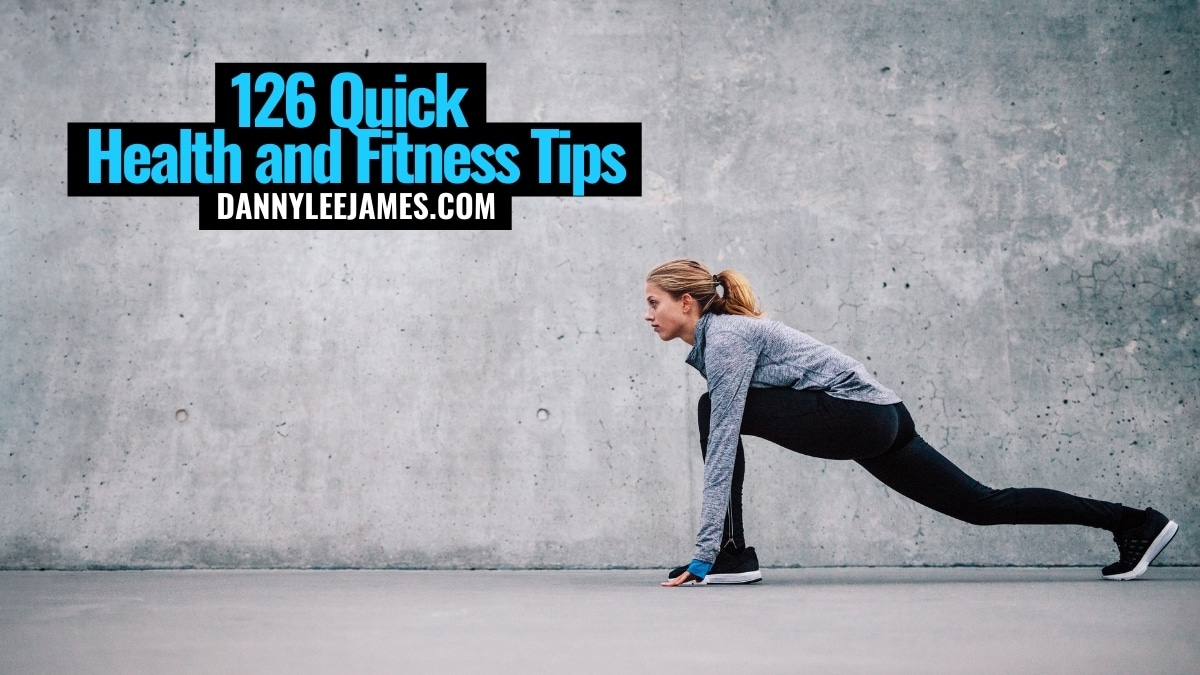
[…] Is Skipping Breakfast Bad For You? […]
[…] Is Skipping Breakfast Bad for You? […]
[…] energy resource when calories dip too low. Which would spell disaster for your physique and or performance goals and potentially your health in the long […]
[…] Eat breakfast […]
[…] Caloric intake was not controlled so there’s no way of knowing if nutrition played a part. […]